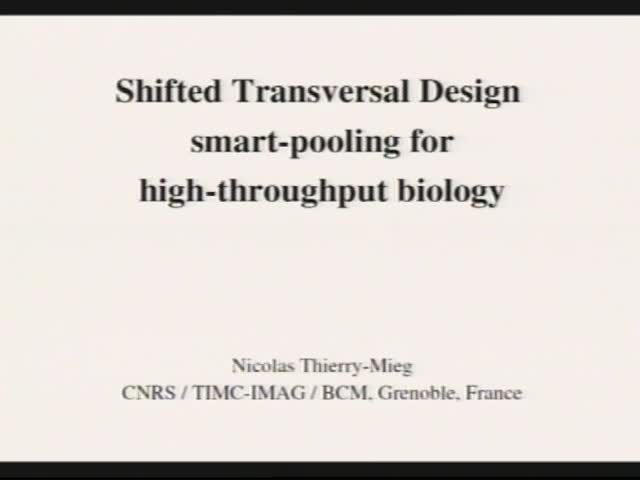Shifted Transversal Design Smart-pooling: increasing sensitivity, specificity and efficiency in high-throughput biology
Presenter
February 15, 2012
Keywords:
- Mappings
MSC:
- 97I20
Abstract
Group testing, also know as smart-pooling, is a promising strategy for achieving high efficiency, sensitivity, and specificity in systems-level projects. It consists in assaying well-chosen pools of probes, such that each probe is present in several pools, hence tested several times. The goal is to construct the pools so that the positive probes can usually be directly identified from the pattern of positive pools, despite the occurrence of false positives and false negatives. While striving for this goal, two interesting mathematical or computational problems emerge: the pooling problem (how should the pools be designed?), and the decoding problem (how to interpret the outcomes?). In this talk I will discuss these questions and the solutions we have proposed: a flexible and powerful combinatorial construction for designing smart-pools (the Shifted Transveral Design, STD), and an efficient exact algorithm for interpreting results (interpool). I will then present the results of validation experiments that we have performed in the context of yeast two-hybrid interactome mapping.
